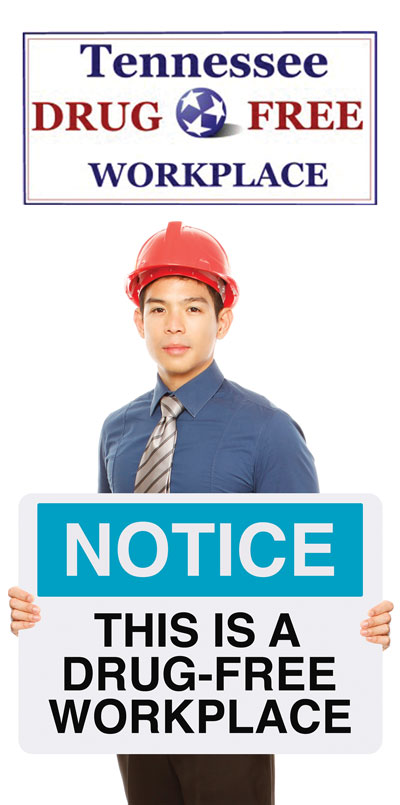Drug abuse drains bottom line

Substance abuse in the workplace drains $100 billion from businesses every year. The Centers for Disease Control and Prevention estimates that 70% of those with a substance abuse disorder are employed.
Other statistics about employee drug abuse are just as staggering. Substance abusers incur 300% higher medical costs, are 2.5 times more likely to be absent eight or more days a year, and are about one third less productive. Some 38 to 50% of all workers’ compensation claims are related to substance abuse in the workplace.
Employers who want to be proactive about the problem can take steps to be certified as a Tennessee Drug-Free Workplace.
Worksites where workers are not impaired by drugs and alcohol are safer and can operate in an enhanced competitive position that is free from the costs, delays and tragedies that accompany workplace accidents resulting from substance abuse-related injuries.
Program Elements
The Substance Abuse and Mental Health Services Administration suggests an effective drug-free workplace program has these elements …
- A written policy that includes expectations for compliance, options for helping employees be drug free and consequences for violating the policy.
- Employee education so employees know and have training on the new program as well as the risks associated with substance abuse.
- Supervisor training.
- An Employee Assistance Program that is designed to help employees with personal and work-related problems that can affect mental and emotional well-being.
- Drug tesing, which can be done onsite or at a medical clinic. (Physicians Quality Care OCCMed’s mobile clinic can be scheduled to come to your workplace to do employee drug tests.)
The Benefits
An employer certified by the Tennessee Drug-Free Workplace Program is entitled to:
- A 5% premium credit on its workers’ compensation insurance policy.
- A shift in the burden of proof in workers’ compensation claims involving a positive alcohol or drug test. If an employee is injured at work and later fails a post-accident drug/alcohol test, it is presumed that the drugs or alcohol were the proximate cause of injury.
- The presumption that the discharge or discipline of an employee, or the refusal to hire a job applicant, who is found to be in violation of the employer’s drug-free workplace program will be considered done for cause.
Source: tn.gov/workforce
We can help!
Physicians Quality Care OCCMed can help your company be certified as a Tennessee Drug-Free Workplace. This includes training employees and supervisors, compiling a written policy and drug testing. Get started on becoming a drug-free workplace. Email Jennifer Hill, OCCMed director.

